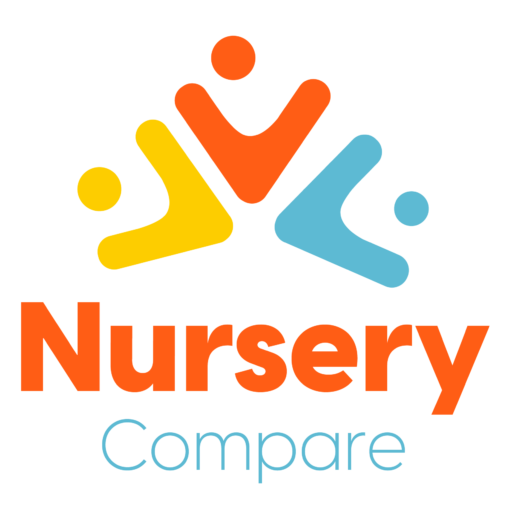
Effective Communication with Toddlers: A Parent’s Guide

Introduction to Communication with Toddlers
Understanding the unique way toddlers communicate is crucial for building a strong foundation for their future social and verbal skills. This guide offers practical advice and insights into the developmental stages of children, highlighting strategies for effective communication with toddlers that foster both emotional and language development.

Foundations of Effective Communication
Effective communication with toddlers begins with active listening and responding appropriately to their needs. Simplifying your language to match their comprehension level and using clear, concise sentences can help make your interactions more understandable and meaningful. Non-verbal cues such as facial expressions, gestures, and body language also play a significant role in how we communicate with young children, providing them reassurance and understanding without overwhelming them with words.
Techniques for Enhancing Communication with Toddlers
Incorporating play into your daily routine can significantly enhance verbal exchanges with your toddler. Play allows children to express themselves creatively and safely while learning new concepts. Consistently using the same words or phrases can help toddlers learn to associate specific terms with their meanings. Furthermore, reading stories together not only boosts their vocabulary but also improves their listening skills, especially when interactive elements like questions or prompts are included.
Handling Challenging Behaviors Through Communication

Understanding the triggers of tantrums and emotional outbursts is essential. Strategies such as calmly offering choices to assert some control or using timeouts effectively can help manage these challenging behaviors. Positive reinforcement, like praising good behavior, encourages your toddler to communicate effectively and respectfully.
Encouraging Expressive Communication
Encouraging toddlers to vocalize their thoughts and feelings is vital in developing their communication skills. Engage your child in simple conversations, expand on their sentences, and introduce new words during play to gradually enhance their language capabilities. Asking open-ended questions also stimulates further dialogue and thought.
Common Misunderstandings in Communication with Toddlers
Misinterpretations of a toddler’s actions or speech can lead to frustration on both sides. It’s important to remember that toddlers are still learning how to express themselves and may not always use the correct words or gestures.
Tips for Everyday Communication
Integrating communication-enhancing activities into daily routines can help make learning seamless for your toddler. Patience and realistic expectations are key as your child learns to navigate their emotions and articulate their thoughts.
Resources for Parents for communication with toddlers
Numerous books and online resources can provide additional guidance on nurturing your toddler’s communication skills. Knowing when to seek help from a pediatric speech-language pathologist or other professional can also be crucial for addressing any concerns about language delays or communication issues.

Here are some carefully selected books and online tools that can provide further guidance and practical tips for parents looking to foster effective communication with toddlers:
Books:
- “How to Talk so Little Kids Will Listen” by Joanna Faber and Julie King – This book offers a wealth of practical strategies to help parents communicate with children aged 2-7. It’s filled with relatable examples and innovative approaches to solving common parenting challenges.
- “The Happiest Toddler on the Block” by Harvey Karp, M.D. – Dr. Karp provides insightful techniques for communicating with toddlers, especially on how to deal with tantrums effectively. His methods focus on respectful and loving communication strategies that recognize the unique developmental stage of toddlers.
- “No Bad Kids: Toddler Discipline Without Shame” by Janet Lansbury – A guide that emphasizes respectful parenting and offers actionable advice for communicating with toddlers in a way that fosters mutual respect and understanding.
Online Resources:
- Zero to Three (www.zerotothree.org) – A leading resource on early development, Zero to Three offers a wealth of articles, videos, and tools aimed at improving communication with young children. Their resources are research-based and cover a range of topics from emotional intelligence to language development.
- The Hanen Centre (www.hanen.org) – Known for its “It Takes Two to Talk” program, the Hanen Centre provides resources designed to help parents enhance their children’s communication skills in naturalistic settings. Their methodologies are especially beneficial for parents of toddlers who are experiencing delays in speech and language.
- PBS Parents (www.pbs.org/parents) – This site offers not only educational programming suitable for toddlers but also parenting resources that focus on developing communication and social skills. Their articles often include expert advice and practical activities that can be incorporated into daily routines.
Apps:
- Khan Academy Kids – Free and without ads, this app provides engaging games and activities that can help enhance language skills in young children, making learning fun and interactive.
- Speech Blubs – Designed to help with speech and language development, this app uses peer video modeling to engage toddlers and encourage speech practice in a fun and educational way.
Conclusion
Mastering effective communication with toddlers is not only about addressing immediate needs or resolving short-term behaviors; it is about setting the stage for lifelong interpersonal skills and emotional intelligence. As parents, the methods you choose to connect and communicate with your child can deeply influence their social capabilities and self-esteem. By consistently applying the strategies discussed, such as active listening, appropriate responsiveness, and playful interaction, you foster an environment where your toddler feels valued, understood, and supported.
It’s essential to remember that each child is unique and may require different approaches to communication. What works for one child might not work for another, and as such, flexibility and observation are key to adapting your communication techniques to fit your child’s evolving needs. Additionally, by integrating these practices into everyday routines, you not only enhance your toddler’s language development but also their ability to express emotions and interact with others more effectively.

FAQs
- What are the best ways to start a conversation with my toddler?
- How can I understand what my toddler wants when they can’t express it clearly?
- What are some signs of language development delays?
- How do I handle public tantrums?
- What are effective ways to teach my toddler new words?
- How can parents use technology to aid communication with toddlers?
Read Also:
Easy and Healthy Toddler Meal Ideas: 10 Must-Try Recipes for Busy Parents